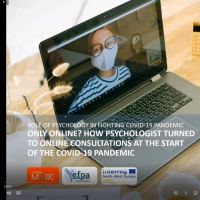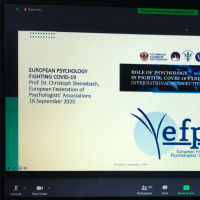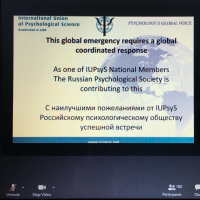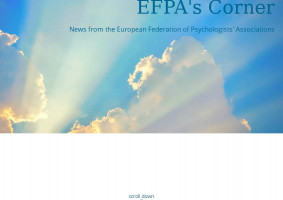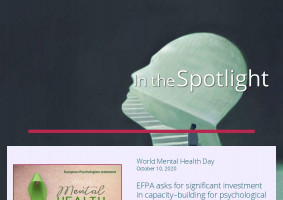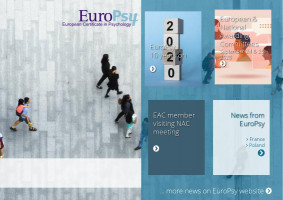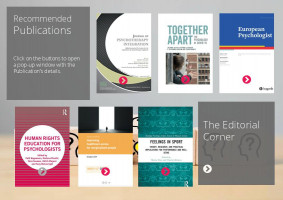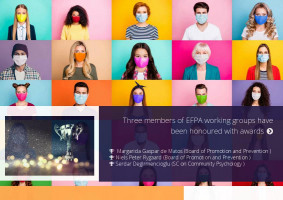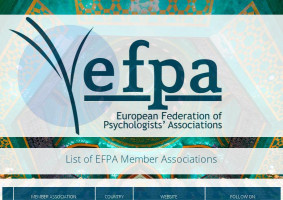-
Mental health funding has been a significant concern for some time. Parity of esteem work (WHO, Mental Health Europe, Global Alliance of Mental Illness Advocacy Networks-Europe, GAMIAN-Europe and others) to ensure that mental health is seen as important as physical health has been variably successful, and perceptions have changed or are changing across the globe. However, this has not come with an increase in funding. Many countries are well developed in their thinking about how to deliver psychological interventions, and it is becoming more common to see psychologists contributing to policy, but countries have largely been unable to implement fit for purpose large scale systems. Whilst access has been improved to mental health services (1), funding for mental health has historically often been the first to be cut during times of austerity (2) (3) (4).
During the pandemic mental health issues are on the rise and psychological support is ever more key.
As we progress through different phases of the Covid-19 pandemic, mental health issues are on the rise and psychological support is ever more key. A number of issues are contributing to this increase including social isolation, job and financial losses, housing insecurity, loss of coping mechanisms, consequences of working in a front-line job. Internationally, requests for crisis mental health support has increased but routine appointments decreased (5) – this provides significant challenges for psychologists to manage workload short and longer term and deal with urgent needs; especially where health care facilities have been converted to covid-19 response units.
Where funding is available, some psychologists are working remotely, but this way of working excludes large parts of societies – those who are digitally excluded. This means that the most vulnerable people in society – those who don’t have or can’t operate the necessary equipment (computer, phone) and/or can’t afford data or call costs are less likely to receive the support they need. For countries to move forward with offering alternative ways of delivering psychological interventions, hidden costs such as impacts on the digitally excluded and training needs for psychologists must be considered.
Whilst international resources are currently appropriately being diverted into Covid-19 responses; medium- and long-term financial planning urgently needs to take account of supporting the mental health of nations alongside other imperatives such as supporting economic recovery and providing vaccinations. This support needs to go further then classical clinical interventions or access to online – interventions.
For example, the use of SMS text messaging (Text4Hope)(6), an evidence-based program, with prior research supporting good outcomes and high user satisfaction as a convenient, cost-effective, and accessible population-level has been proposed as a mental health intervention for closing the treatment gap.
Psychological services at the community level We also need to think about delivering psychological services at the community level. Initial efforts have been made on responding to the development, implementation, and evaluation of mental health interventions such as the Conceptual Model of the Emotional Epidemic Curve which combines Mental health preparedness and action framework (MHPAF)(7) along with The WHO-Global Influenza Preparedness Plan (WHO-GIPP)(8) or the Optimal Mix of Services: WHO Pyramid Framework.(9)
Without a concurrent, increased focus on mental health, the current increase in mental health issues (5) will translate to long term significant mental and physical health issues for individuals and populations.
_w430_h288_1.png)
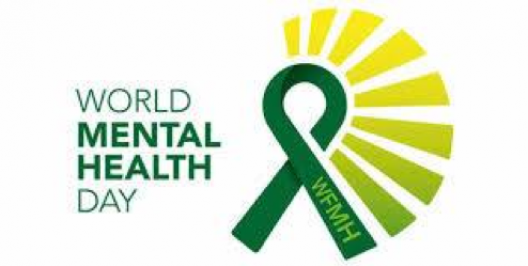
_w458_h304_1.png)
Cyprus
This year and the changes caused in all areas of our lives due to COVID-19 and quarantine, brought to the surface the enormous importance of both physical and mental health. Millions of people directly or indirectly face the effects of the pandemic, with major effects on their mental health. However, few are those who have the possibility of access to quality mental health services.
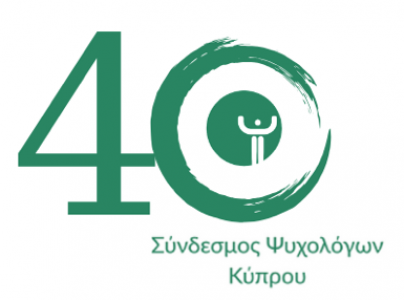

The Psychology Association wishes everyone a good world mental health day! We encourage everyone to ask more, because more transparency about mental health can lead to:
- That it will be easier to share thoughts with others, and to give and receive support
- Less taboo and shame around mental challenges
- To strengthen mental health
- A more inclusive local environment, working environment and school environment
- A generous societyGod verdensdag for psykisk helse ønskes alle!
_w484_h142_1.png)

The Portuguese Psychologists Association and the Union of Professional Football Players create a psychological support scholarship, within the scope of the collaboration protocol.
This scholarship is available to all (ex-) professional football players and has psychologists specialized in Clinical and Health Psychology and / or Sport Psychology from all districts of Mainland Portugal, as well as from the Autonomous Regions Azores and Madeira.
Humanity needs Psychology
What do Psychology and Psychologists Offer Humanity?What is psychology and what do psychologists do?
August 17, 2020
The science of psychology generates knowledge about the nature and development of human thoughts, emotions, and behaviors at both individual and societal levels. Psychology is an autonomous scientific discipline that applies to nearly every aspect of our boundless experience. Psychologists work in a broad range of settings – effectively any place where human functioning is relevant. Psychological science deepens our understanding of human behavior within social, cultural and linguistic contexts [1]. Psychologists have a role in supporting health and well-being globally within a human rights framework with the goal of improving lives.
Why do governments need psychology and psychologists?
It is humanly and financially beneficial for governments to recognize that psychologists make critical independent contributions to the alleviation of suffering and the enhancement of lives [2]. Social determinants of health, such as education, adequate food and nutrition, a reasonable standard of living, work opportunities and equitable treatment are recognized as fundamental human rights enshrined in the United Nations Sustainable Development Goals [3] [4] [5] [6] [7].Failure to address mental health challenges, such as depression and anxiety, that are often a consequence of lack of attention to social determinants of health costs the global economy $1 trillion annually in lost productivity2. Prevention and intervention of psychological health conditions, however, have been proven highly cost beneficial[2]. When psychological science is applied to the contexts in which humans live, work, and play, potential and productivity increase [8] [9].
Yet, in spite of the existence of both money-saving and clinically effective services for at-risk populations or those demonstrating symptoms of mental disorders, the majority of youth and adults in almost every country in the world receive no psychological treatment due to limited resources, stigma and lack of healthcare providers [10] [11].
What is unique about psychology and psychologists?
Psychologists understand biological, social and environmental research and are trained to apply solid evidence to improve human lives across cultures and languages. To become a psychologist, one must demonstrate high professional, scientific and ethical knowledge and standards. Psychologists’ advanced preparation emphasizes technical and scientific autonomy and independent roles within transdisciplinary teams to promote human well-being in every area of life (e.g., family, school, university, health, workplace, public service, and communities to name a few)[12].
Psychologists work by applying the scientific method and complementary diagnostic, assessment, and reasoning skills to provide comprehensive and integrated approaches to human health. Employing psychologists for independent, decision-making roles aligns with their advanced training. As the world faces crises without precedent, psychologists’ contributions to the alleviation of physical, emotional, and mental impacts on individuals, groups, and communities are critical[13].
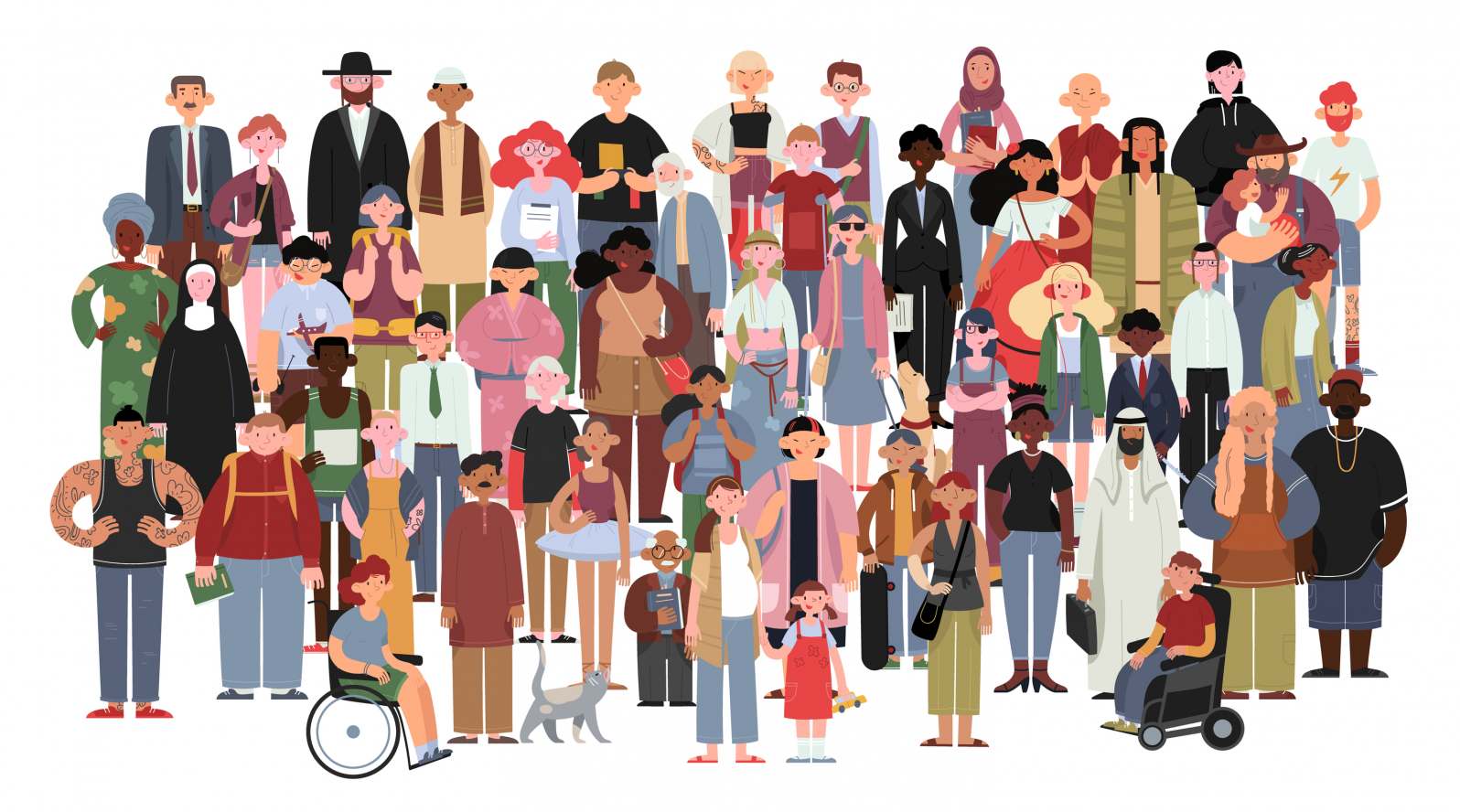
(1)_w302_h350_1.jpg)
-
EFPA COVID-19 Psychologists' Support Hub -
managing new normal and responding to the start of the second wave
By Nicola Gale, EFPA’s Vice President
October 20,12020
Europe’s psychologists have continued our work related to the COVID-19 pandemic leading into the autumn. The breathing space of summer with lower case numbers and a little flashback for some people of normality, now for many seems far away again as case numbers in Europe rise and measures to combat the virus are (re)introduced.
A focus for many European countries has been the return to school and higher education. On our hub EFPA has shared a number of resources aimed to support children and young people, as well as their families and teachers, navigate the return after the long break of home schooling followed by the summer holiday. Educational psychologists in the UK produced a film and guidance paper on the importance of play, guidance offering a psychological perspective on the process of re-engaging children and young people with school, and a paper for teachers which outlines how key psychological theories can inform this process and provides practical advice about how these can be used to support school communities become more resilient as they reconnect and recover. Our partners at the American Psychological Association also focused on this area, with their guidance document “Recommendations on Starting School During the COVID-19 Pandemic” which documents what psychological science says about learning, child development, motivation, assessment, and behavior change in the classroom context, an area of psychology that has a rich history.
Turning to the world of work, the European Network for Workplace Health Promotion (ENWHP) one of our partners in the EU funded H-Work consortium looking at promoting mental health, has highlighted a Cochrane special overview ‘Working at home’ covering staying active, the work environment, prevention of eye problems due to computer use, and preventative actions for musculoskeletal problems. As working from home resumes under reintroduced measures these issues will increase in importance.
Healthcare workers are likely to be in particular need of support as the second wave so soon after the first results in increased demand for COVID-19 care and at the same time makes delivering care as usual more difficult. Russian colleagues have produced “Recommendations on prevention of psychological distress among healthcare workers during the COVID-19 pandemic”, a guide containing practical tips and reassuring messages for professionals delivering healthcare in these demanding times.
For psychology, our friends at the International Union of Psychological Science (IUPsyS) have been busy looking at how psychology associations ourselves have been faring during the pandemic, and produced a European level summary of their coronavirus pandemic response survey. This covered 79 organisations in 72 countries, with 20 of EFPA’s 38 member countries responding, representing some 220,000 European psychologists. Albania, Belgium, Cyprus, Czech Republic, Denmark, France, Germany, Greece, Iceland, Ireland, Italy, Latvia, Luxembourg, Netherlands, Norway, Portugal, Romania, Slovenia, Ukraine, and United Kingdom submitted data from the European region. The results can be read on the hub. It may be interesting in the future to explore how some of the results may indicate differences in health and social care systems and local / national government structures, which would influence the role psychologists and psychology professional bodies played at the start of the pandemic in supporting their communities.
At the European level as a whole, it is interesting to follow the work of Eurofound, a tripartite European Union Agency, whose role is to provide knowledge to assist in the development of better social, employment and work-related policies. Eurofound provides information, advice and expertise on working conditions and sustainable work, industrial relations, labour market change and quality and life and public services, on the basis of comparative information, research and analysis. Eurofound has produced a report presenting the findings of the Living, working and COVID-19 e-survey, carried out to capture the far-reaching implications of the pandemic for the way people live and work across Europe. Two rounds of the e-survey have been carried out to date: one in April, when most Member States were in lockdown, and one in July, when society and economies were slowly re-opening. The findings of the e-survey from the first round reflected widespread emotional distress, financial concern and low levels of trust in institutions. Levels of concern abated somewhat in the second round, particularly among groups of respondents who were benefiting from support measures implemented during the pandemic. At the same time, the results underline stark differences between countries and between socioeconomic groups that point to growing inequalities.
Please do continue to share resources with us as you develop them, so they can reach our colleagues and ultimately benefit citizens across Europe.
Read more on the EFPA Psychologists’ Support Hub about COVID-19 crisis
-
COVID -19
EFPA supported International online-conference on COVID-19
By Anna Leybina, EFPA EC member
September 16-17, 2020
Scientists from 49 countries united to fight COVID-19 pandemic during international online-conference “Role of Psychology in fighting COVID-19 pandemic: International perspective” organized by the Russian Psychological Society and supported by EFPA.
In his welcome address to the participants EFPA President Christoph Steinbach talked about EFPA its mission and goals, also in light with the current pandemic, emphasizing diversity of psychological profession and the ways psychology may assist the society. He also shared EFPA Psychologists Support Hub about COVID-19 which plays an important role in collecting all the essential information that may be helpful for psychologists in different fields of practice. He also discussed the issues that psychology may face in post-COVID-19 period.
Tom van Daele, the Chair of EFPA Project Group on E-Health delivered the presentations on the transformation of counselling and psychotherapy due to COVID-19 outbreak, and issues related to this situation. In particular, challenges and possible solutions faced digital delivery of psychological services. Also, the results of international research dedicated to this topic have been shared.
Nicola Gale, EFPA Vice-President, and Anna Leybina, EFPA EC member were the moderators for the conference.
The conference also was supported by International Union of Psychological Sciences, and its President Pam Maras provided conference participants with some insights regarding psychological work and support in COVID-19 form the global perspective.
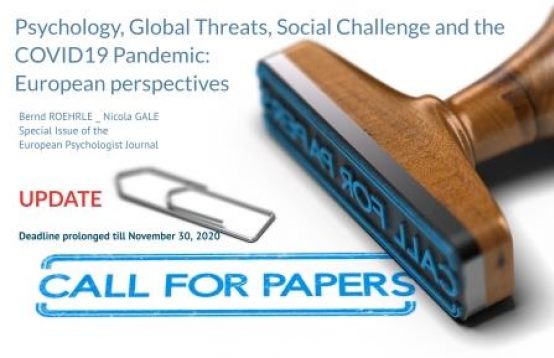
Call for Papers:
Psychology, global threats, social challenge, and the COVID-19 pandemic: European perspectives
European Psychologist Journal Special issue
Guest editors: Bernd Roehrle and Nicola GaleCall for papers for the European Psychologist, “Psychology, Global Threats, Social Challenge, and the COVID-19 Pandemic: European Perspectives”:
-
We are very keen to hear from authors who could contribute a review paper, which is the publication policy of the journal, on one or a combination of the areas of interest highlighted in the call for papers.
We are aware, as we say in the call, that the recency of this coronavirus pandemic means that there is a limited pool of specific research to draw upon. This is particularly the case in areas of the discipline like education and the workplace. We will therefore take a flexible approach when accepting papers for review. If there is insufficient research available we would encourage broadening out perhaps to include other epidemics such as SARS, Ebola, H1N1, and potentially other types of disasters. If this is not appropriate to the chosen topic, there should be room for theoretical, research-strategic, practical and political considerations for the future to be considered. A combination of review and empirical work is also possible (with an emphasis on a review character). The reviews should be as systematic as possible (e.g. PRISMA model up to a meta-analysis).Bernd and Nicola, guest editors of the European Psychologist Journal on Covid-19, would be delighted to hear from potential authors about your ideas and do hope you will consider submitting your papers to this special edition, to showcase European psychology and collaboration with our international partners.
Deadline: November 30,2020Submissions
Target publication date: December 2020/January 2021
-
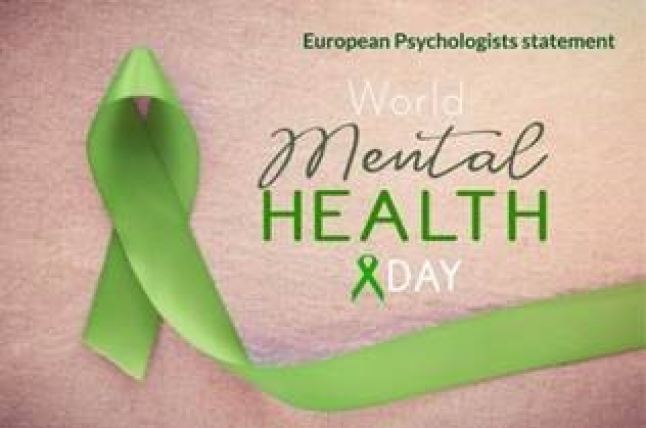
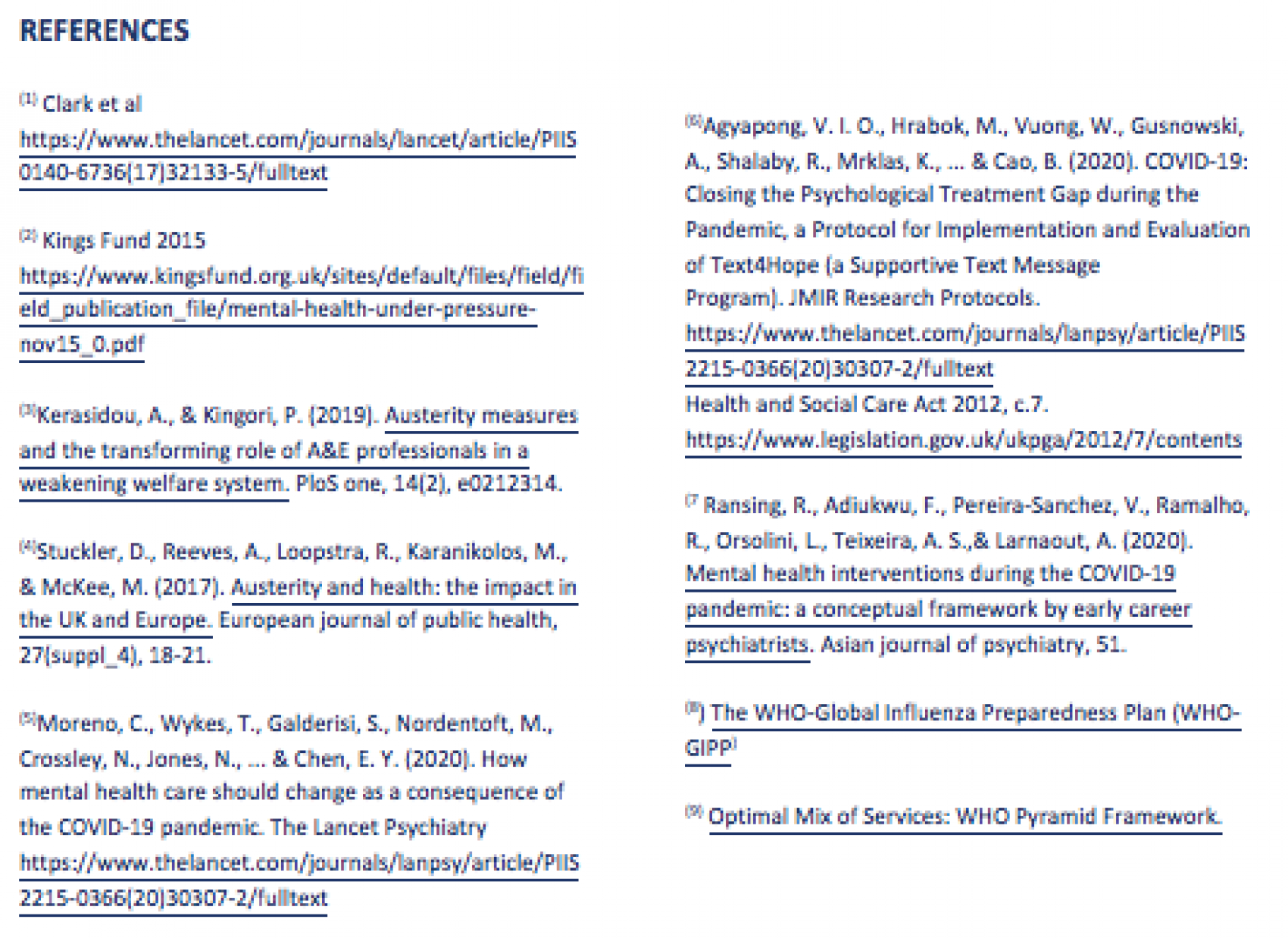
_w484_h294_1.png)

